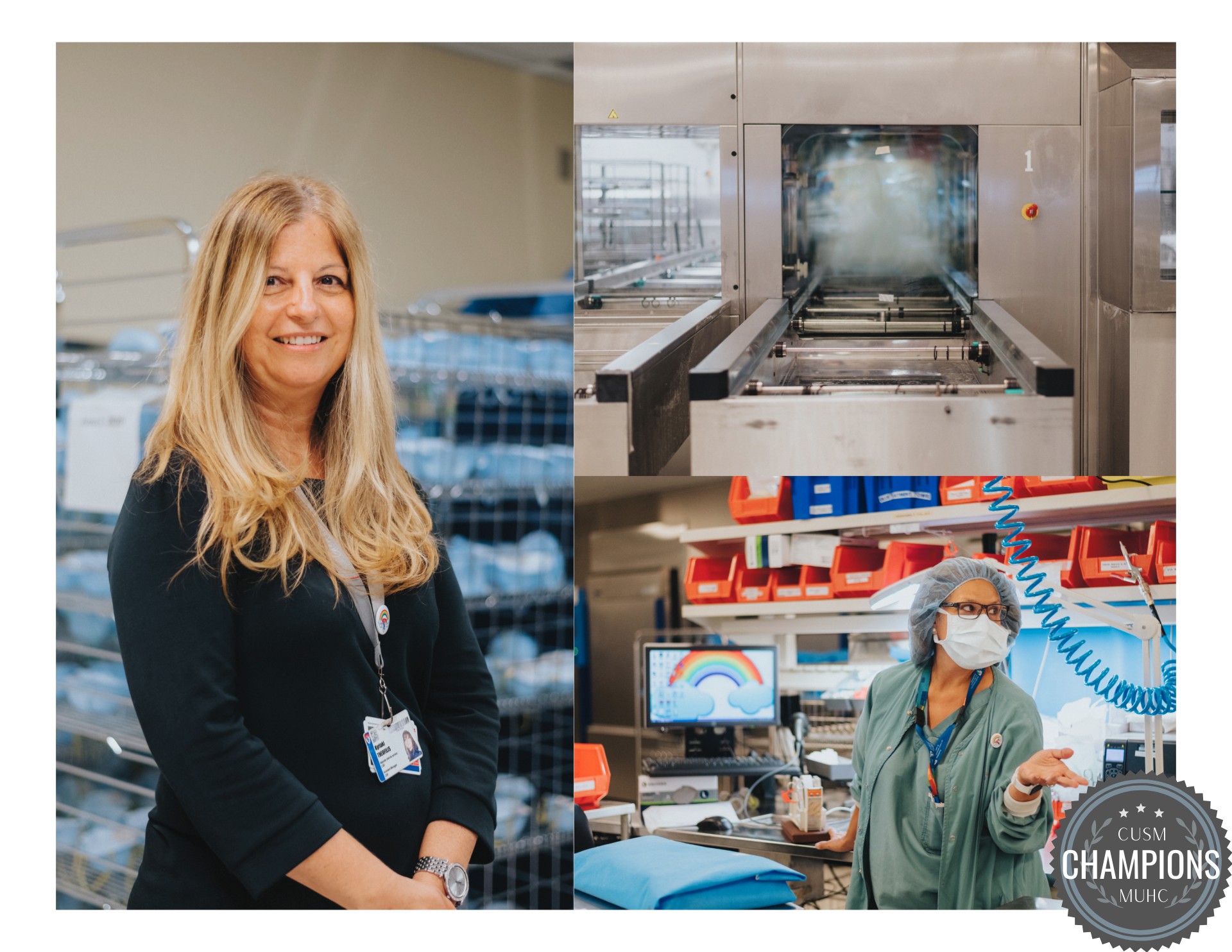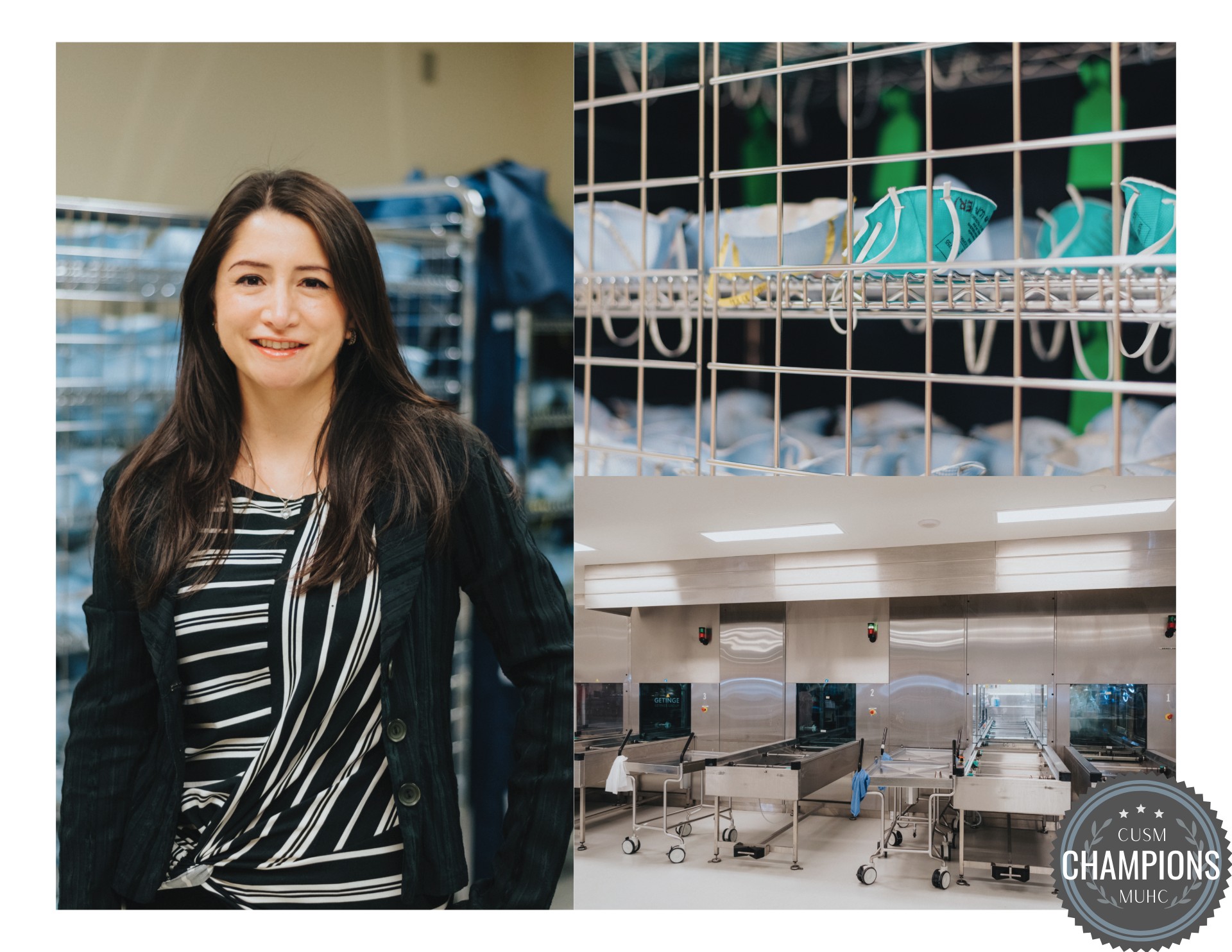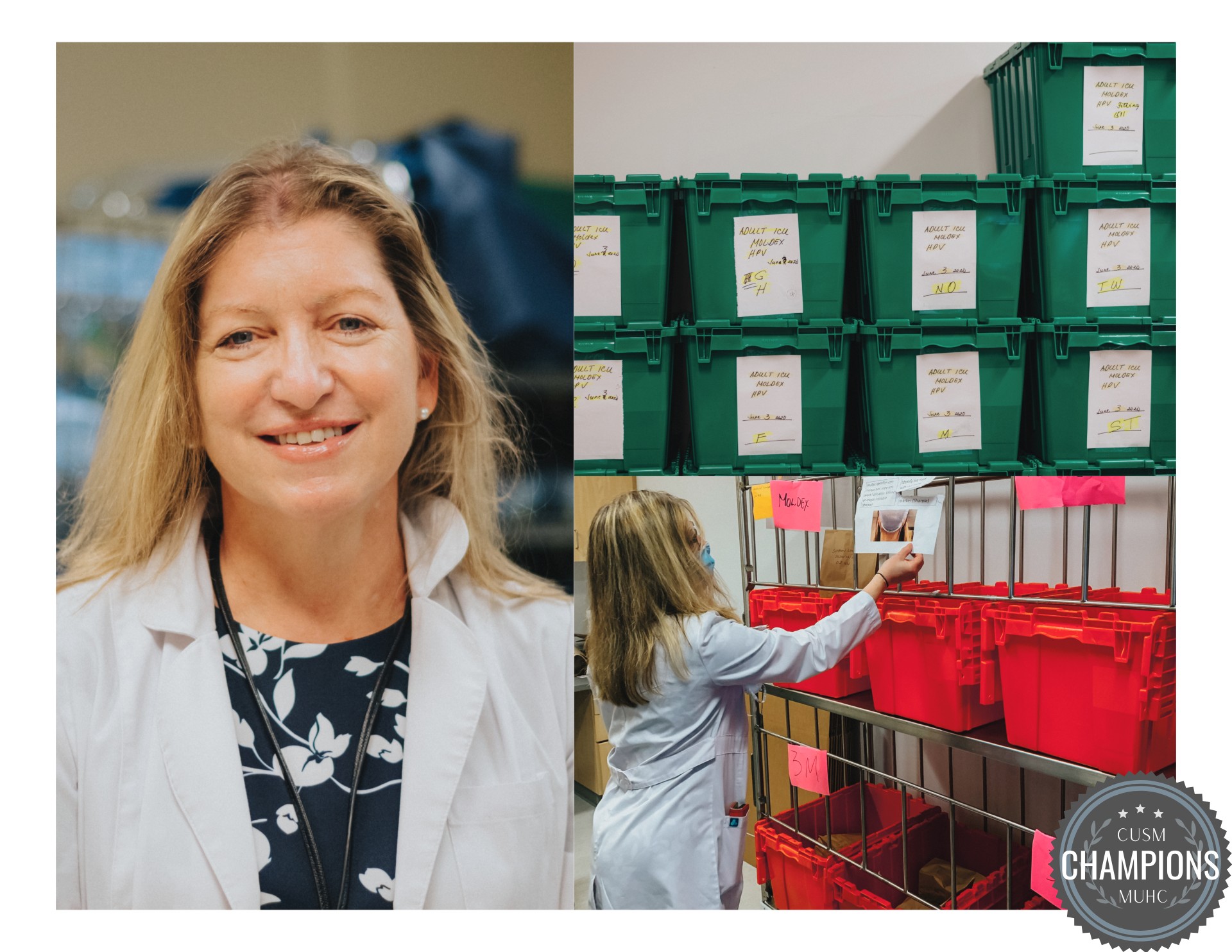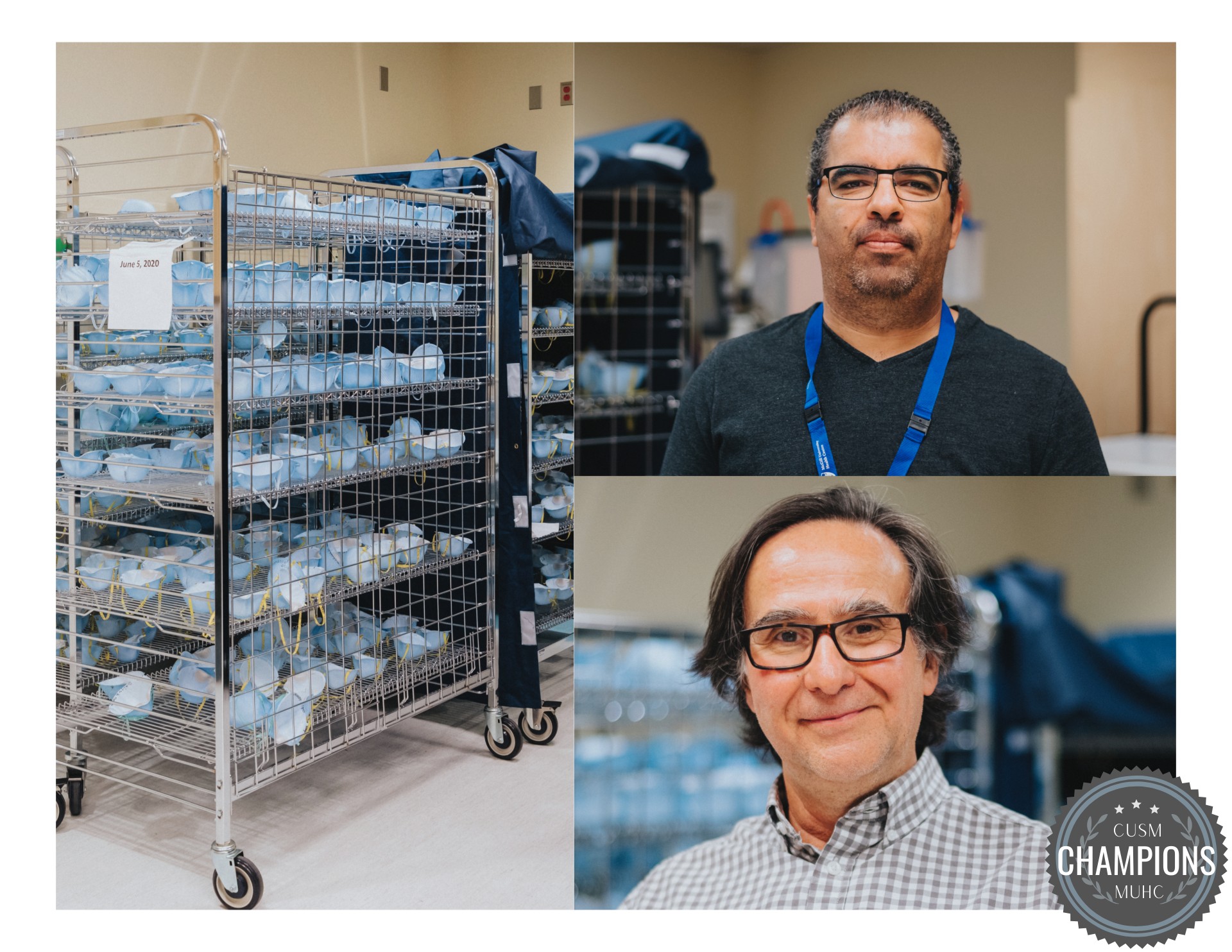Global shortage of N95 masks: Finding a solution right at home
Like most healthcare institutions around the globe, the McGill University Health Centre (MUHC) faced a critical shortage of N95 masks during the Covid-19 pandemic. Teams from across the MUHC pulled together and, like champions, found a safe solution to the dwindling supplies.
Towards the beginning of April, the Medical Device Reprocessing (MDR) team, with the help of the Infection Control, Nursing, Biomed, Occupational Health and Safety and Fit Testing teams, started looking for ways to reprocess N95 masks. The MDR team is responsible for the sterilization and disinfection of all reusable medical instruments. Through a rigorous cleaning process involving manually pre-cleaning and inspecting instruments, medical-grade chemicals, industrial machinery and thermal disinfection, the MDR reprocesses the delicate and complex instrumentation used in the Operating Rooms (OR), clinics and on the units.
In the search for a solution to the N95 problem, the team conducted a series of tests and trials following guidelines from the Institut national de santé publique du Québec (INSPQ).
By the third week of April, after running a battery of tests and trials — and following a method approved by Health Canada – a the right solution came in the form of Bioquell, a vaporized hydrogen peroxide machine that cleans between 500 and 750 masks per cycle of four hours.
“It takes seven days for the final results, but the masks can be disinfected five times or more and worn at least six times, and we can return a large volume of disinfected masks to the users,” says Kiki Theofilis, MDR operations manager for the MUHC.
The next challenges: housing the Bioquell and tracing thousands of masks
Next, the teams had to find a new space for the Bioquell, which was kindly loaned by the Research Institute of the MUHC and was being housed there. “As the number of masks needing disinfection grew, so did the need for more space,” says Laura Rodriguez, an MUHC project manager who was leading the modernization of the Lachine Hospital until she was brought on board to manage the reprocessing of N95 masks. With the help of Carlos Noriega, Biomedical Equipment Specialist, the team built a new room to accommodate the machine. “The set up requires very precise specifications, and this is where Carlos’s expertise was key,” she adds.
Reprocessing thousands of masks and returning them to the right person on the right unit, required a plan. Laura worked with Kim Tanguay, a nursing practice consultant with intimate knowledge of the units, ensure the masks were collected, disinfected and returned to the right user.
Considering that each healthcare professional uses an average of six N95 masks per shift, resulting in hundreds of masks per day, planning an efficient tracing system was no small feat. (See sidebar below: The tracing system)
“We put in place an entire tracing system, involving colour-coded labels, and storage spaces specifically designated for the hundreds of boxes and bins containing both the soiled and cleaned masks.,” says Kim.
The proper sorting and transport of the masks was essential to the success of the process. “While the transport team moves the masks back and forth from the units, a team of the MUHC printshop under Abel De Andrade leadership was reassigned to sort and organize clean masks so they could be returned to their original owner,” adds Kim.
The system in place is working so well that up until the second week of June, the team was able to disinfect 9000 masks!
“The unique part of this project was the diversity of teams and specialists who collaborated to find a solution,” says Laura. And for this reason, the following people must also be acknowledged as Champions in finding a solution to the critical problem of the shortage of N95 masks: Dr. Charles Frenette, Michel Picard, Connie Patterson, Ramona Rodriguez, Michel Jacques, Dac Hieng-Vuong, Erlinda Aracena, Martine Gauthier, Ian Bélanger, John Théo, Dimitrios Mavrakis, Lauriane Descoteaux, William Johns.





